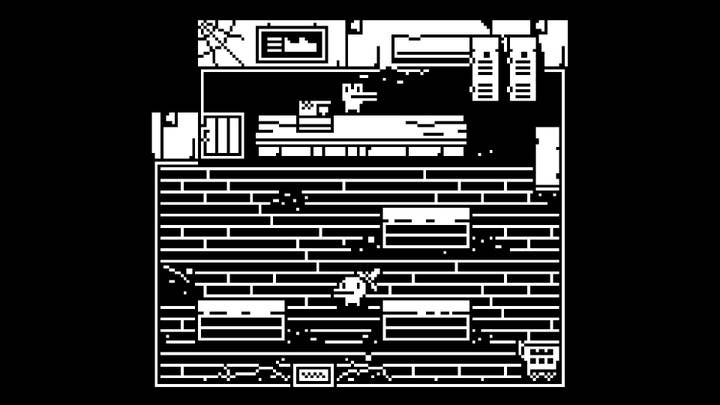Brevity is the soul of Minit
Why I Love: Size Five Games' Dan Marshall explains why the 60-second adventure game represents "streamlining at its best"
Why I Love is a series of guest editorials on GamesIndustry.biz intended to showcase the ways in which game developers appreciate each other's work. This entry was contributed by Dan Marshall of Size Five Games, the UK indie studio behind stealth action game The Swindle, recently published by Curve Digital for the Nintendo Switch.
When I first picked up Minit, I fell in love with the BBC Micro-ness of the whole thing - the graphics, presentation, music and sound effects took me to a place I haven't seen since Palace of Magic or Castle Quest. That's 1987, which must be, what? Over 20 years ago now (shut up shut up yes it is).
"I need a pencil and some graph paper," I thought to myself. Before long, I was in a sprawling desert, and my ageing brain was struggling to remember the path back-and-forth to my home base. "I need to map this out, old-school style."
The thing is, Minit is better than that. It's a crunched, compacted-in-on-itself version of all these disparate elements - this is a solid old-school adventure without the trekking for trekking's sake. The map almost seamlessly doubles back on itself, opening new paths organically as you find and use the various inventory items scattered around. At times you'll feel far from home base, only to find you're just around the corner.

Minit's central concept - you die every 60 seconds - forces the game to boil down each core element into a microcosm of the concept. Indie games have always lived by the mantra "necessity is the mother of all invention," and I think it's really inspirational how Minit, forced to reduce so many of its core gameplay elements to fit its own self-imposed logic, somehow manages to do something fresh, innovative and tightly designed with all this stuff we as designers have sort of bloated beyond recognition. All this shines, despite being so bare-bones it's laughable.
Normally game design is nebulous, or so built up upon the work of others it feels 'obvious.' A superfluous job. You just do whatever the last person did and add some bells and whistles to suit what you're making. But with Minit, you appreciate the craft so much more.
Minit was sold as a sort of Zelda-in-microcosm, but to me, it's a point-and-click adventure game. I've never played the original Zelda, so maybe that's why, but there's something in the way the game distils its core gameplay into ultra-manageable little 60-second chunks that makes you realise someone has sat, agonised, and chewed over each and every moment of gameplay to perfection.
The game's puzzles are frequently placed at the very edge of a run's 60-second limit, but they're crisp, identifiable, and laid bare in a way that lets you identify the different elements in a split second, ready to be tackled on your next run through. Likewise, your inventory is boiled down, idiot-free. Sword. Watering can. Coffee. Flashlight. No fiddling about combining stuff; grab it and it's good to go. It works in context - you've got the thing, you're through. No fuss, no cutscene. The relentless pace drives that decision, of course, but it's a testament to Minit's design.
The snappy dialogue is a hint at what to do next contained within a single speech bubble. How do you do that? I need three lines of dialogue as a lead-in alone, but there's more character to these tiny sprites and their single sentence all-caps outbursts than most games manage in 15 hours of cutscenes. It's led by necessity, of course. There's no room for branching dialogue trees here, but the care and attention with which every syllable is chosen has worked wonders. Often, you can read and run, with several characters clearly shouting their singular summed-up purpose at you while you get on with navigating the game world as quickly as possible.
So it is with action, the game's take on sword fighting crunched down to a singular, satisfying hit process (coupled with that trademark Vlambeer screenshake-sound effect power combo, doubtless the work of alumni @jwaaap), and minimal enemies. For a game about a cursed sword there's just the right amount of hitting being done. There are no insurmountable encounters, just quick, clunky bashing and you're away.
It's streamlining at its best. It's working within the parameters of your budget, scope, art style, the works. Minit is a weird little masterclass of design because, weirdly, it feels like there's so little of it.
They said 2000 words for this, but using that many feels thematically disingenuous.
Developers interested in contributing their own Why I Love column are encouraged to reach out to us at news@gamesindustry.biz.